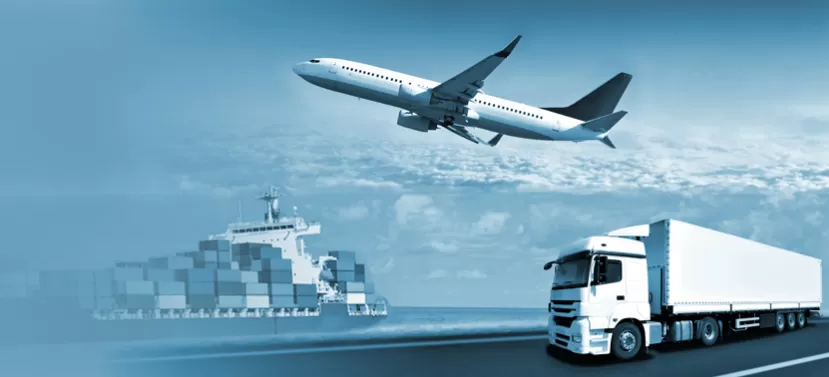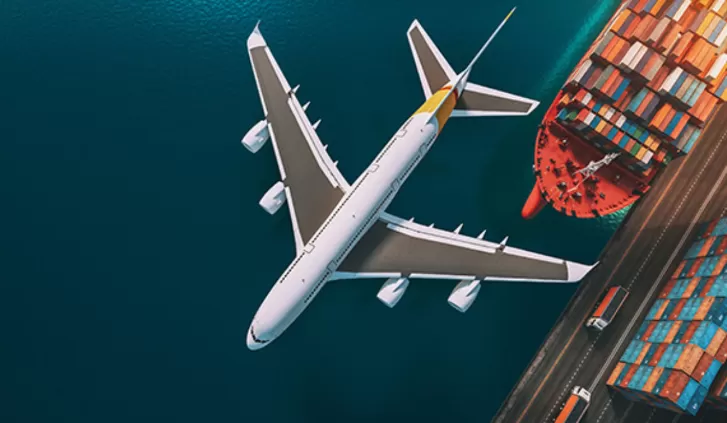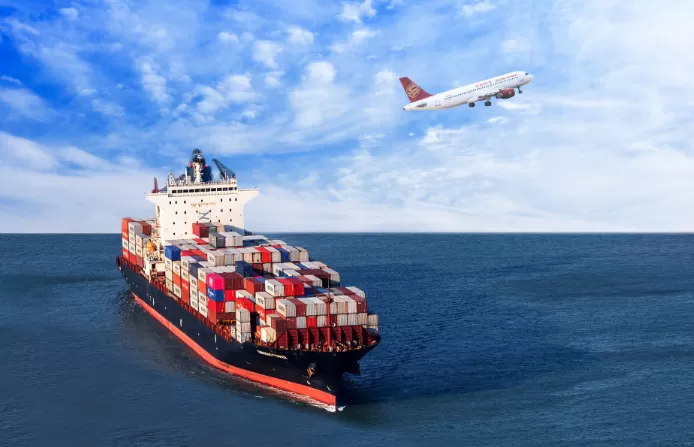Let's be clear: finding a competent air sea freight forwarder isn't about comparing a list of names and prices. That's a recipe for disaster. The wrong choice leads to communication blackouts, unexpected charges, and supply chain failures that cost far more than any initial shipping quote.
This guide provides something different: a strategic framework. We'll give you the tools to vet, compare, and select a logistics partner that aligns with your long-term business goals, not just your immediate shipment.
1. The Self-Assessment Checklist: Define Your "Perfect" Forwarder
Before you look at anyone else, look at your own operation. You cannot evaluate a forwarder if you don't know what you need from them. Ask yourself these critical questions:
What is your primary trade lane balance?
Is it 80% ocean freight from China with 20% urgent air replenishment? Or a 50/50 split between continents? A forwarder strong in Trans-Pacific routes may be weak in your secondary European lane.
What is the profile of your cargo?
Commodity Type: Are you shipping high-value electronics, temperature-sensitive pharmaceuticals, or oversized project cargo? Each requires specific certifications, equipment, and handling protocols.
Volume & Frequency: Do you ship two 40' containers per month, or 20 LCL shipments per week? Your volume dictates the level of attention you'll receive.
What are your non-negotiable technology requirements?
Do you require API integration to push shipment data directly into your ERP system? Is a fully transparent, real-time tracking dashboard a must-have? Or are you comfortable with email updates and a basic portal?
The Takeaway: Document your answers. This becomes your baseline requirements document, moving the conversation from "What's your price?" to "Here is our profile. How do you meet these needs?"
2. The 5 Core Competencies: How to Vet Beyond the Sales Pitch
Once you have your shortlist, evaluate them against these five pillars. A weakness in any one can be a critical failure point.
1. Network & Operational Control: Asset vs. Asset-Light
The Question to Ask: "Do you own and operate your own offices at key origin and destination ports, or do you rely heavily on third-party agents?"
Why It Matters: A forwarder with its own offices in Shanghai, Rotterdam, and Chicago has direct control over your cargo. They manage the process, not just coordinate between subcontracted partners. This translates to better accountability, consistent service quality, and faster problem resolution. An asset-light model can be cheaper but adds layers of complexity and risk.
2. Technology Stack & Real-Time Visibility
The Question to Ask: "Can you walk me through your platform's capabilities for booking, documentation, and exception management—not just simple tracking?"
Why It Matters: A modern forwarder's platform should do more than show a ship's location. It should allow for online booking, generate and manage shipping documents, send proactive alerts for delays (e.g., "Customs hold at destination"), and provide a clear audit trail. Request a live demo. An outdated, clunky portal is a proxy for an outdated, clunky operation.
3. Industry-Specific Expertise & Certifications
The Question to Ask: "Can you provide a case study or reference from a client in our industry facing a similar logistics challenge?"
Why It Matters: Shipping pharmaceuticals requires knowledge of GDP standards and access to certified cold chains. Shipping automotive parts involves strict MILK RUN and sequencing logistics. General cargo forwarders lack this specialized knowledge. Look for certifications like IATA's CEIV for pharmaceuticals or TAPA for high-security cargo.
4. Financial Health & Stability
How to Vet: This is often overlooked. A simple search for recent news and financial reports can reveal stability or distress.
Why It Matters: The freight forwarder is financially responsible to carriers and ports on your behalf. If they become insolvent, your cargo can be seized or held at port until payments are cleared—a nightmare scenario. Partnering with a financially sound company is fundamental risk management.
5. Communication & Proactive Crisis Management
The Question to Ask: "What is your specific communication protocol when a shipment is delayed by weather, a port strike, or a customs inspection?"
Why It Matters: Problems will occur. The differentiator is how they are handled. The best forwarders have a documented escalation protocol and a single point of contact empowered to solve problems. If the answer is vague, expect to be left in the dark when things go wrong.
3. Decoding the Quote: A Real-World Breakdown of Costs
Let's dissect a real LCL ocean freight quote from Shenzhen to Hamburg to reveal what you're actually paying for.
Ocean Freight: $85/CBM. This is the base cost to move your goods on the water.
Bunker Adjustment Factor (BAF): $215/CBM. This is the carrier's fuel surcharge. It's volatile and a major cost driver.
Terminal Handling Charge (THC): $45/CBM (Origin) / $65/CBM (Destination). The cost for port terminals to load/unload the container.
Documentation Fee: $50. Covers the Bill of Lading and other administrative work.
Customs Clearance: $120. The broker's fee to handle import formalities.
The "All-In" Trap: Be wary of a single, round-number "all-in" price. It often masks profit margins and provides no transparency for when costs change. A transparent quote, like the one above, allows for informed discussion and builds trust.
4. Your 6-Step Action Plan: From List to Partnership
Turn this framework into action.
Internal Alignment: Complete the Self-Assessment Checklist with all stakeholders.
Create a Long List (5-7 Companies): Use industry directories (like The Journal of Commerce), referrals, and targeted searches.
Issue a Detailed RFP: Your RFP should include scenarios. "We have a project that requires 10 CBM of components by sea and 200kg of urgent spare parts by air to arrive simultaneously. Detail your process and costing for this."
Analyze Responses & Create a Shortlist (2-3): Score them against the 5 Core Competencies. Who provided specific answers versus generic marketing copy?
Conduct Final Demos & Reference Checks: For the demos, put them on the spot. "Please show us how you would book and track the combined air-sea shipment from our RFP." Then, actually call the provided references.
Negotiate the Service Level Agreement (SLA): Focus the SLA on key performance indicators (KPIs)—on-time pickup, documentation accuracy, communication response times—not just the cheapest price.
5. Frequently Asked Questions (FAQ)
Q: What's the real difference between a global giant and a specialized mid-sized forwarder?
A: Global giants offer vast networks and one-stop-shop convenience but can be bureaucratic. Mid-sized specialists often provide more personalized service, deeper expertise on specific trade lanes, and greater flexibility. Your choice depends on whether you prioritize global reach or agile, dedicated support.
Q: How critical are IATA and FIATA certifications?
A: IATA accreditation is essential for any forwarder booking air cargo—it's a baseline requirement, not a mark of excellence. FIATA membership indicates a certain professional standard. However, treat these as minimum qualifying criteria. They are a license to operate, not a guarantee of superior performance.
Q: We received a quote that is 20% lower than all others. Is this a red flag?
A: Almost always, yes. This is typically a "buy-in" quote. The forwarder is counting on making up the difference through hidden accessorial charges later, or they are desperate for volume and may provide subpar service. Consistently low-ball pricing is a sign of financial or operational weakness.
Q: At what specific point does legal liability for the cargo transfer from us to the freight forwarder?
A: This is defined by the Incoterms in your sales contract (e.g., EXW, FOB, CIF) and the forwarder's trading conditions. Generally, the forwarder's liability begins when they take physical possession of the goods at the origin warehouse and ends upon delivery to the consignee at destination. However, their liability is often limited by international conventions (like the Hague-Visby Rules for sea freight) unless you declare a higher value and pay for enhanced insurance.
Q: What is a Freight Forwarder's Certificate of Receipt (FFCR) and how is it different from a Bill of Lading?
A: An FFCR is a document issued by the forwarder as proof they have received your goods for shipment. It is not a document of title. A Bill of Lading, issued by the actual carrier (shipping line or airline), is a negotiable document that serves as both a receipt and a title to the goods. You need the Bill of Lading to claim possession of the cargo at destination.
Q: If our freight forwarder subcontracts part of the journey to a trucking company that causes an accident, who is ultimately liable?
A: Your contractual and legal recourse is with your freight forwarder. They are responsible for the performance of their chosen subcontractors. This is a core reason to choose a forwarder with a robust carrier vetting process and strong insurance. They must resolve the issue with the trucking company while maintaining their liability to you.
Q: How do forwarders typically handle "dimensional" or "volumetric" weight for air freight, and can we verify their calculation?
A: Airfreight charges are based on chargeable weight, which is the greater of the actual gross weight or the volumetric weight (L x W x H in cm / 6000). Reputable forwarders will provide the dimensions they used and show the calculation on their quote. You can and should verify this by providing your own pallet or carton dimensions upfront to avoid disputes.
Q: What exactly is covered under a standard "Cargo Insurance" policy arranged by a forwarder, and what is often excluded?
A: A standard "All Risks" policy typically covers physical loss or damage from external causes during transit (e.g., vessel collision, fire, theft). Common exclusions include delays (even if caused by a covered peril), improper packaging, inherent vice (e.g., fruit rotting), and loss of market. Always read the policy wording, and consider a contingent liability policy if you are relying on the carrier's limited liability.
Q: What are the key differences between a "Master" Air Waybill and a "House" Air Waybill, and why does it matter?
A: The Master Air Waybill (MAWB) is the contract between the forwarder (who acts as a carrier) and the actual airline. The House Air Waybill (HAWB) is the contract between you (the shipper) and the forwarder. The HAWB number is your primary reference for tracking with your forwarder, while the MAWB is used for the physical movement. This structure confirms you are working with a consolidator, not the airline directly.
Q: If we need to change the consignee or destination after the Bill of Lading has been issued, what is the process and typical cost?
A: This is known as a "Bill of Lading Amendment" or "Re-consignment." It is a complex and often expensive process. The original Bill of Lading must be surrendered, and amendments require the approval of all original parties. The carrier will charge a fee, and there may be additional costs for documentation, administrative work, and any rerouting. It highlights the critical importance of accuracy at the time of booking.
Ready to Evaluate a Partner, Not Just a Provider?
We are confident enough in our multimodal expertise to be measured against this rigorous framework. We don't want to be just another name on your list; we want to be the strategic partner that helps you build a more resilient and efficient supply chain.
Book a complimentary logistics consultation. Come prepared with your checklist and your toughest questions. Let us demonstrate how we measure up.

 EN
EN
 FR
FR
 ES
ES
 JA
JA
 PT
PT
 RU
RU
 AR
AR







